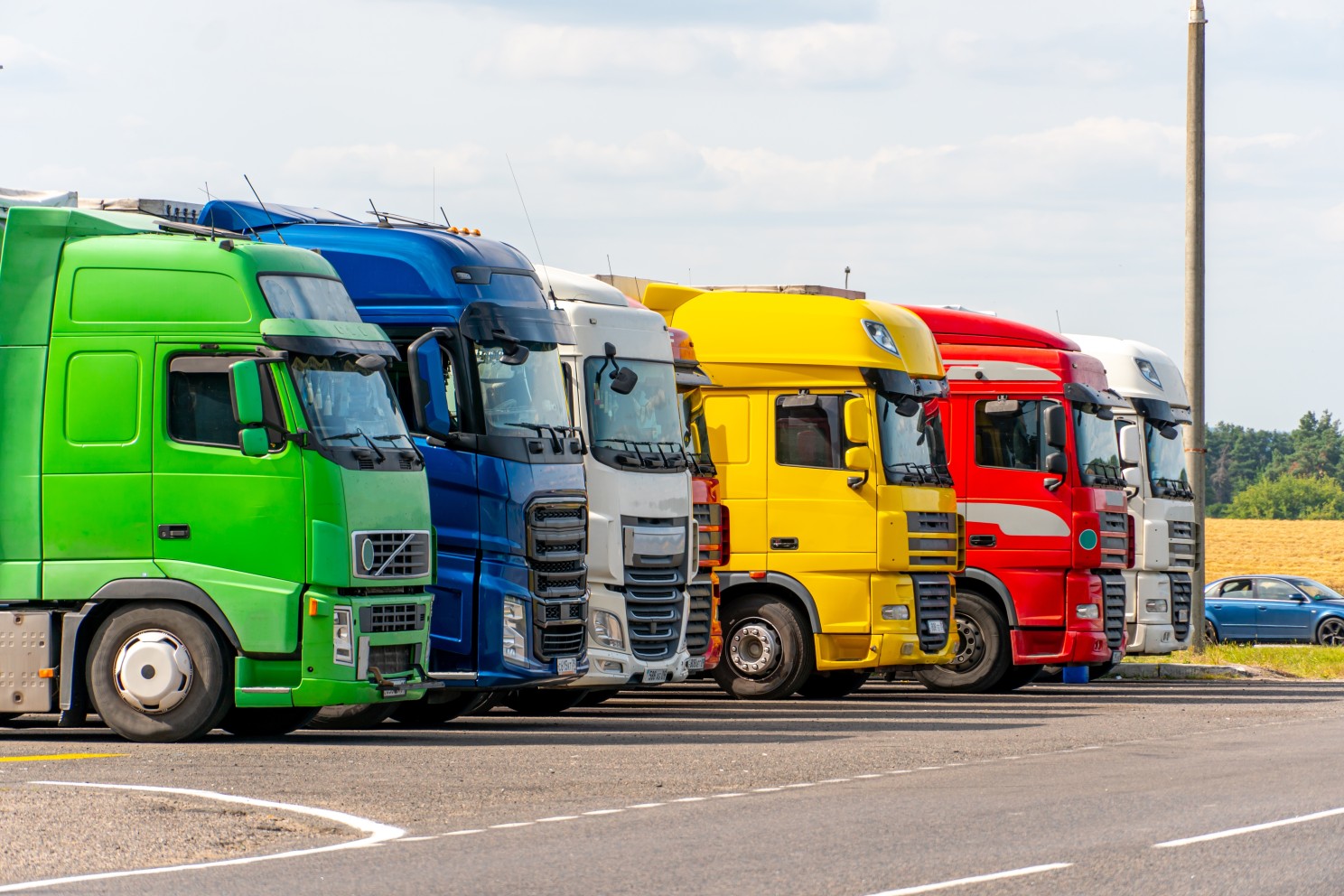
Susie Jones
Come affrontare la diversità dei conducenti nel settore
Creato: 21/08/2024
•
Aggiornato: 21/08/2024
Se le chiedessimo di descrivere un camionista, la sua risposta potrebbe rappresentare l'immagine stereotipata di un uomo bianco e anziano. Ma è vero? Tradizionalmente, il settore degli autotrasporti è stato dominato dagli uomini. Nel corso degli anni, il settore è diventato più diversificato e ha aperto opportunità di ingresso a donne, persone di età e background diversi. La diversità sta crescendo, ma le sfide esterne, come la Brexit e la pandemia, hanno rallentato questo processo.
Donne nel settore
Nonostante una carenza di 100.000 autisti di mezzi pesanti nel Regno Unito, solo l'1% - 3% dei camionisti sono donne. Allora, perché non ci sono più donne che si iscrivono alla vita sulla strada?
Sicurezza: Si stima che il 60% delle donne camioniste si sia sentito insicuro durante il lavoro. Molte hanno espresso la necessità di parcheggiare sotto le luci, di pianificare le soste e di portare con sé uno spray al peperoncino.
Tecnica e attrezzature: Dal punto di vista ergonomico, i camion sono stati costruiti per gli uomini. In passato, le donne hanno trovato difficile raggiungere i comandi, regolare i sedili e gli aspetti fisici del lavoro. Tuttavia, grazie ai progressi tecnologici, lo sforzo fisico non è più un problema. La maggior parte degli autocarri moderni è dotata di servosterzo e cambio automatico che facilitano le cose.
Nonostante queste battute d'arresto, le donne fanno sentire la loro voce e impongono cambiamenti nel settore. Autisti come [Jodi Smith] (https://www.instagram.com/pinktrucker90/?hl=en) sono preziosi sostenitori del settore. Jodi condivide le sue esperienze di autotrasporto online e dimostra che questo settore non è solo un mondo per uomini.
"Guidare un camion non è un lavoro da uomini - posso fare questo lavoro con un set completo di acrilici! È piuttosto fisico, ma non è difficile", afferma Jodi quando [le abbiamo parlato nel 2021] (https://fleetpoint.org/driver-training-safety/driver-safety-2/are-women-the-future-of-trucking/). Con sette anni di esperienza alle spalle, Jodi continua a sostenere la necessità che più donne entrino a far parte della comunità degli autotrasportatori.
Un risultato che potrebbe portare a strade più sicure - I dati dell' American Transportation Research Institute mostrano che le donne sono autiste commerciali più sicure. I conducenti maschi hanno il 20% di probabilità in più di essere coinvolti in un incidente rispetto alle loro controparti femminili.

Diversità di età nel settore
L'Office of National Statistics indica che l'età media di un autista di mezzi pesanti è di quarantotto anni e che il 47% degli autisti di camion nel Regno Unito ha più di cinquant'anni e si appresta ad andare in pensione. Queste statistiche, oltre all'attuale carenza di autisti, suggeriscono la necessità di avere autisti più giovani nel settore.
È più facile a dirsi che a farsi; molti giovani automobilisti devono affrontare le seguenti sfide:
Formazione: Ottenere la patente commerciale può costare fino a 2.000 sterline.
Assicurazione: Sebbene l'età minima per guidare un camion nel Regno Unito sia 18 anni, molti hanno difficoltà a ottenere un'assicurazione.
Esperienza: Alcune aziende vogliono assumere autisti esperti, il che può rappresentare un ostacolo.
Condizioni: La vita dei camionisti può essere impegnativa: i lunghi orari e il tempo trascorso lontano dai propri cari possono essere un deterrente. Tuttavia, la vita sulla strada offre molti vantaggi, come la comunità, i viaggi, la retribuzione e la stabilità del lavoro.

Le aziende in cerca di autisti possono trarre vantaggio dall'assunzione di camionisti più giovani. Sono più propensi ad adattarsi a un settore in continua evoluzione. Inoltre, imparano in fretta e accolgono con favore i progressi tecnologici. L'aumento degli autisti più giovani nel settore si tradurrà in tassi di turnover più bassi, riducendo i costi aziendali. Inoltre, garantirà che il settore soddisfi la crescente domanda di beni e servizi.
Tuttavia, quali sono gli inconvenienti per chi guida in età avanzata? Secondo alcuni, l'età influisce sulle capacità fisiche e cognitive, influenzando la capacità di guidare in sicurezza. Queste capacità sono fondamentali per gli autisti di camion che devono affrontare lunghe ore di lavoro, esigenze fisiche e situazioni di stress.
La FMCSA ha affrontato questi problemi. I regolamenti prevedono che gli autisti più anziani si sottopongano a frequenti esami medici e valutazioni della guida. Recentemente è stato riportato che un autista di camion di 90 anni di Sheffield continuava a fare il camionista dopo aver ricevuto un certificato di buona salute. Molti sostengono che gli autisti anziani portino con sé decenni di esperienza e conoscenze, suggerendo che se sono in salute non dovrebbero esserci ostacoli all'impiego.
Come può la diversità risolvere l'attuale carenza di autisti?
Nel 2022 l'Ufficio per gli Affari dei Veterani ha erogato 100.000 sterline all'associazione Veterans into Logistics. L'associazione offre ai veterani l'opportunità di diventare autisti di mezzi pesanti. Il finanziamento ha permesso all'ente di incrementare in modo significativo la formazione annuale, di aumentare il personale e di triplicare la formazione disponibile. XPO, ASDA e Muller Milk & Ingredients sono tutte aziende che assumono attivamente veterani direttamente dopo la formazione.
Inoltre, ASDA ha messo a disposizione 40.000 sterline per contribuire all'ulteriore formazione. Il sostegno a enti di beneficenza come Veterans into Logistics crea una cultura più diversificata nell'ambito della guida degli autocarri e affronta attivamente l'attuale carenza di autisti.
Cosa si può fare per attirare più diversità?
Avere una forza lavoro diversificata apre le aziende a diversi punti di vista ed esperienze. Cosa possono fare le aziende per attirare una forza lavoro diversificata?
Investite nella formazione: La formazione per educare i dipendenti su temi come i pregiudizi impliciti, l'inclusività sul posto di lavoro, la prevenzione della discriminazione e il sostegno a una forza lavoro diversificata può avere un effetto positivo.
Investite in un processo di assunzione inclusivo: L'anonimizzazione del CV di un candidato può ridurre i pregiudizi inconsci.
Promuovere una cultura inclusiva: Comunicate ai potenziali candidati come state affrontando gli attuali problemi di diversità e inclusione.
Raggiungere i gruppi sottorappresentati in questo settore.
La promozione e l'accoglienza di una cultura diversificata nella guida degli autocarri può apportare notevoli benefici al settore. Non solo contribuirà a creare un ambiente di lavoro più inclusivo e accogliente, ma aiuterà anche a far fronte alla continua carenza di autisti. Le aziende di trasporto hanno la responsabilità di abbracciare la diversità tanto quanto i conducenti di camion.

In quale Paese c'è richiesta di autisti di camion?
Secondo un rapporto pubblicato nel dicembre 2022, le carenze in Europa sono aumentate del 42% dal 2020 al 2021. Il Regno Unito si è classificato al primo posto con 100.000 posti vacanti di autista. Anche il Messico e la Cina erano in cima alla lista, con un aumento delle carenze del 30% per il Messico e uno sbalorditivo 140% per la Cina.
Avremo bisogno di camionisti in futuro?
L'introduzione dei camion a guida autonoma ha fatto pensare a molti che non ci sia futuro per i camionisti. Tuttavia, questo non è affatto vero.
La diffusione dei camion autonomi avverrà in modo graduale in determinate regioni. La probabilità che ciò influisca sulla maggior parte dei conducenti è scarsa.
Se i camion autonomi fossero implementati in tutto il mondo, gli autisti sarebbero comunque necessari. La richiesta di autisti di camion non potrà che aumentare, perché sono troppe le cose che potrebbero accadere se non ci fosse un autista in cabina.
Quali sono gli stereotipi dei camionisti?
Conosciamo l'importanza degli autotrasportatori, ma agli occhi di alcuni, gli stereotipi negativi sono ancora legati al settore: questa rappresentazione può essere dovuta a un'errata rappresentazione da parte dei media e, talvolta, a qualche autista inesperto. Ma cos'è questa immagine stereotipata? E perché è sbagliata?
Sovrappeso - Alcuni autogrill offrono fast food poco salutari che potrebbero dare l'impressione che i camionisti consumino solo quelli. Tuttavia, questa non è certo la norma. Mangiare sano in viaggio può essere una sfida, ma molti si attengono a una dieta equilibrata e fanno regolarmente esercizio fisico. Date un'occhiata ai nostri consigli per mangiare sano in viaggio.
Cattivi conducenti: uno stereotipo che non potrebbe essere più lontano dalla verità. I camionisti professionisti prendono molto sul serio la sicurezza. Spesso rispettano i limiti di velocità, sono molto prudenti in caso di condizioni atmosferiche difficili e lasciano molto spazio tra loro e gli altri conducenti.
Sboccato - Tutti siamo vittime della rabbia stradale e i camionisti non fanno eccezione. Tuttavia, è ingiusto attribuire questo stereotipo solo ai camionisti.
Tutti i camionisti sono uomini - Gli uomini sono più numerosi delle donne in questo settore; tuttavia, le donne camioniste sono in aumento.


